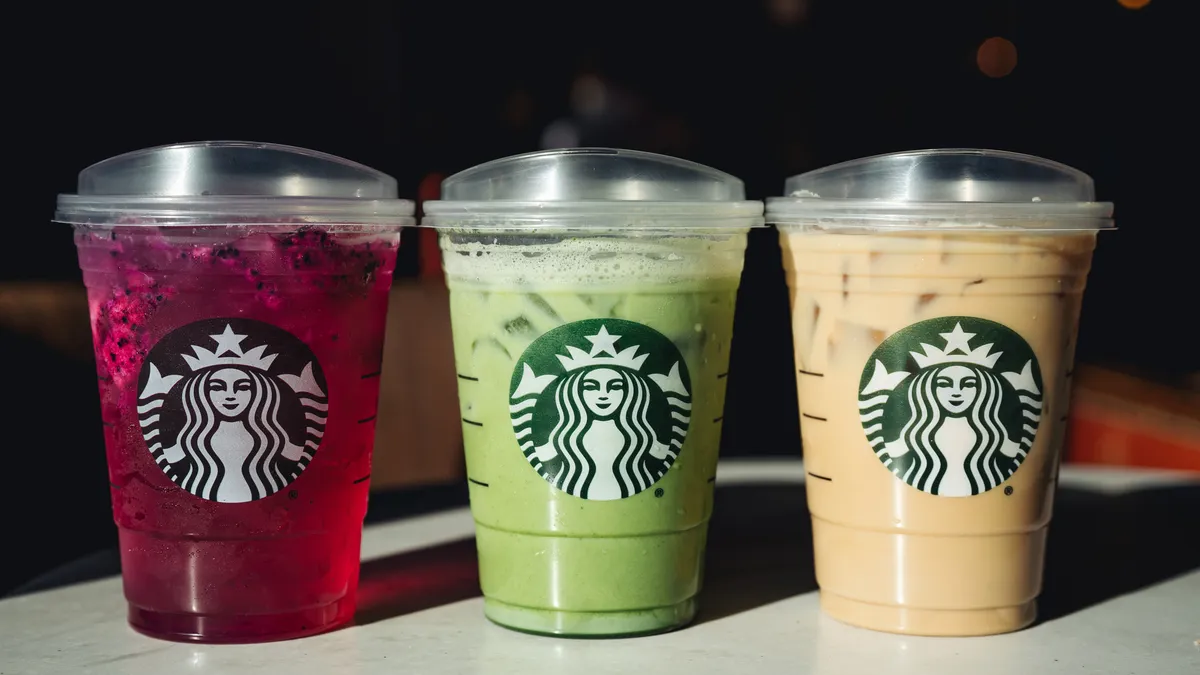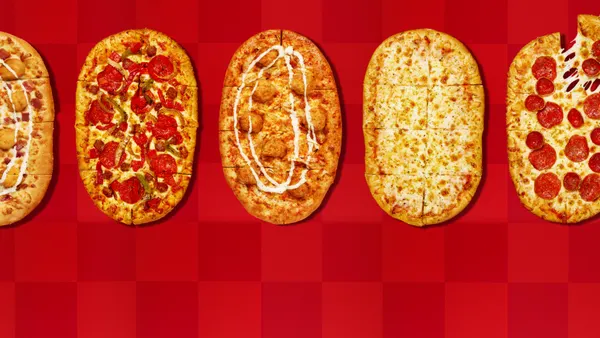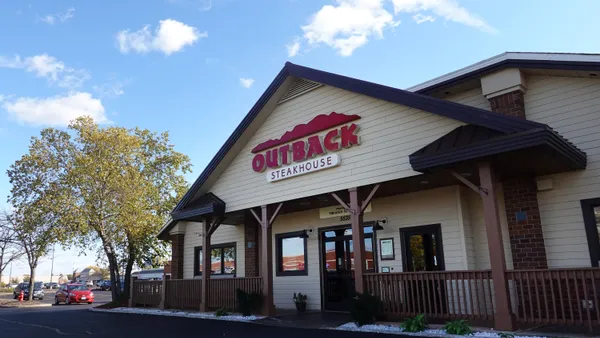Dive Brief:
- Starbucks is developing a new feature for its mobile app that will allow consumers to scan Starbucks packaged coffee with their phones to view their package's place of origin and trace its journey to the store, according to a company release.
- The company also announced that it is trialing multiple, "greener" cups that can be both recycled and composted in Seattle, San Francisco, New York, Vancouver and London. Starbucks will select the cup technologies from the winners of the NextGen Cup Challenge that were announced this month.
- The coffee giant is also rolling out its strawless plastic lids to all stores in the U.S. and Canada within the next year. The lids, which contain 9% less plastic than its current lid and straw, will first appear this summer in Los Angeles, San Francisco, Seattle, Washington D.C. and Indianapolis stores. Plastic straws will still be available for request by customers who need or prefer them.
Dive Insight:
Starbucks has been pouring major investments into its environmental sustainability initiatives throughout the the past few years, with its new sippable lids part of its push to eliminate plastic straws globally by 2020. And while consumer concern over packaging waste appears to be at an all-time high, the coffee giant's investment in digital traceability may have a stronger impact on its brand halo.
Today's diner is hungry for authenticity and transparency surrounding their food's origins, sentiment that has driven a growing number of coffee drinkers to more craft-focused coffee chains. Starbucks may be able to shed some of its "Big Coffee" reputation by giving its customers the power to see the source of their beans. According to the company release, the scanning technology will also provide information about ethical sourcing standards, farmer support centers, where the beans were roasted and brewing suggestions for the optimal cup of coffee.
Michelle Burns, SVP of Global Coffee & Tea at Starbucks, discussed the project — which is part of a two-year project "exploring the benefits of digital traceability" — at the chain's annual shareholders meeting on Wednesday.
The company also claims that this technology will empower their farmer partners.
"With identity being the foundation of traceability, farmers have been able to leverage the value of being identified to create a credit history of the value of their production, as well as an acknowledgement of their self worth," Jean Nkunzimana of the MISOZI Coffee Cooperative in Rwanda stated in Starbucks' announcement of its traceability initiative last year.
This focus on the people behind the coffee beans could strengthen positive consumer sentiment around Starbucks' brand and give it more of a human element as it continues to stretch its global reach. The move could also drive other coffee chains to make their supply chain journeys accessible to their customers. Investing in traceability isn't unusual in the coffee space — Philz Coffee, for example, provides a breakdown of the steps of the coffee journey it has access to, but leveraging that information for interactive marketing purposes is still a ripe opportunity.













